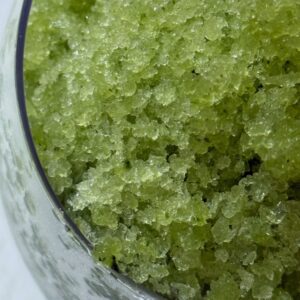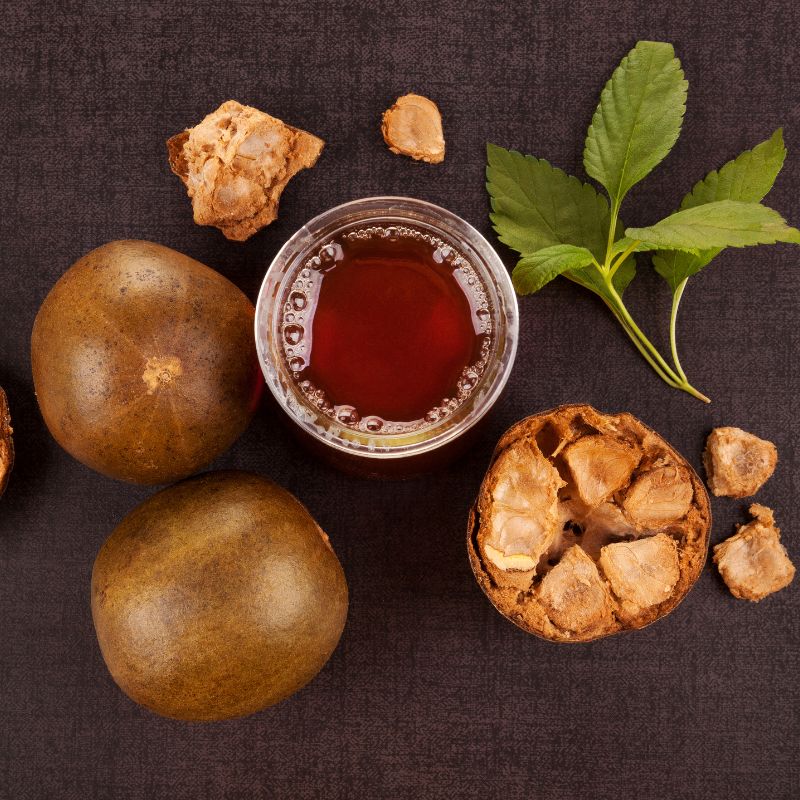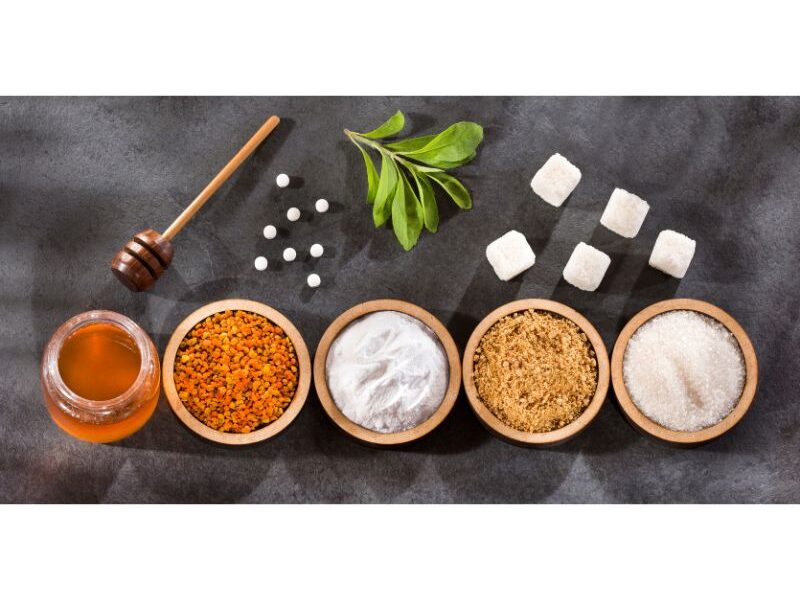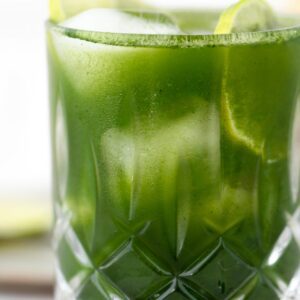
Cucumber & Tremella Granita
A Sicilian-style granita for hot days and hydrated cells When

Kick-start, energise, rejuvenate
All carefully planned and prepared to help nourish, reset and rejuvenate the body and mind.

The demand for natural sweeteners is rapidly increasing as more people seek healthier alternatives to refined sugar and artificial sweeteners. Concerns about the health risks linked to excessive sugar intake, such as obesity and diabetes, along with the potential negative effects of artificial sweeteners, have led many to explore natural options. In this article, let’s do a deep dive into natural sweeteners and find out why this shift is taking place.
Natural sweeteners have gained significant attention as healthier alternatives to refined sugar. Natural sweeteners are derived from various sources, including plants, fruits, and other whole foods, and they offer a range of benefits that go beyond mere sweetness.
Many healthy foods, such as fruits, vegetables, whole grains, and milk, naturally contain sugars that are essential for energy and overall well-being. These natural sugars are accompanied by vital nutrients like vitamins, minerals, and fiber, which contribute to a balanced diet and support bodily functions. Unlike refined sugars, natural sweeteners provide a more wholesome alternative to getting that sweet kick.
Reducing refined sugar intake is crucial for maintaining good health. According to the National Health Library, excessive consumption of refined sugars has been linked to various health problems, including obesity, type 2 diabetes, and heart disease. By opting for natural sweeteners, individuals can enjoy the sweetness they crave while also promoting better health and reducing the risks associated with refined sugars.
Want a bit of background information before moving on? Read up on Stevia!
Stevia is a popular natural sweetener derived from the leaves of the Stevia plant. It has been used for centuries in South America and has gained worldwide recognition as a sugar substitute. Stevia is particularly appealing because it is intensely sweet—gram to gram a hundred times sweeter than sugar! Even so, it contains no calories.

According to Medical News Today, stevia has a glycemic index of less than one. This means it doesn’t spike blood sugar levels, making it a great option for those with diabetes or those looking to reduce sugar intake. Stevia is commonly available in liquid, powder, and granulated forms, and is widely used in beverages, desserts, and even savoury dishes.
Monk fruit is a fruit native to Southern China and Northern Thailand. The fruit’s extract is incredibly sweet, all the while containing no calories, as per Cleveland Clinic. Like Stevia, monk fruit has a glycemic index of zero, making it a suitable choice for diabetics and those on low-carb diets. It’s often used in beverages, baking, and cooking, making it an all-in-one sugar alternative.
Despite such benefits, it’s important to check the label when purchasing monk fruit extract. Sometimes it’s combined with other sweeteners, thereby negating its benefits.

Interested in learning more? Check out our in-depth post on Monk Fruit Sweeteners.
Lakanto is a brand of sweetener that combines monk fruit extract with erythritol, a sugar alcohol. This blend results in a sweetener that closely mimics the taste and texture of sugar, making it an excellent choice for those seeking a natural, calorie-free alternative.
Erythritol and Xylitol are sugar alcohols that are often used as low-calorie sweeteners. Erythritol is found naturally in some fruits. Xylitol is derived from birch trees or a plant called xylan and is often used in sugar-free gums.
Both Erythritol and Xylitol have a low glycemic index, making them popular choices for those managing diabetes or following a low-carb diet. However, there are some studies like this one by the Cleveland Clinic pointing to a few risks, so it’s important to consider these before consuming either.
Yacon syrup is derived from the root of the yacon plant, native to the Andes Mountains in South America. It’s rich in fructooligosaccharides, which is a type of fibre that feeds gut bacteria. Yacon syrup has a sweet, molasses-like flavour and is lower in calories than sugar. Jerusalem artichoke syrup, made from the root of the Jerusalem artichoke, is another sweetener with a similar taste profile to honey.
Need more convincing? Check out our post on Healthy Sugar Alternatives
Natural sugar substitutes like honey, agave nectar, maple syrup, coconut sugar, and brown rice syrup are popular alternatives to refined sugar, often chosen for their more natural origins and potential health benefits. These sweeteners can offer additional nutrients, such as antioxidants and minerals, which refined sugar lacks. For instance, according to University Hospitals, maple syrup and honey contain antioxidants, while coconut sugar provides small amounts of vitamins B and C. Some of these sweeteners, like agave nectar and coconut sugar, also have a lower glycemic index, meaning they have a less significant impact on blood sugar levels.

However, it’s important to remember that these natural sweeteners are still forms of sugar. Consuming them in excess can lead to the same health issues associated with refined sugar, including weight gain, increased risk of type 2 diabetes, and heart disease.
The perception that these sweeteners are healthier can also lead to overconsumption. While they may offer some nutritional benefits, they are still calorically dense, and portion control is crucial to avoid undermining health goals.
Natural sugar substitutes can be a better choice than refined sugar when used in moderation. They offer unique flavours and some nutritional advantages, but it’s essential to use them mindfully to avoid the downsides of excessive sugar intake.
Why does sweet food make us feel bad? Find out why in this post about Sugar!
| Natural Sweetener | Artificial Sweetener | |
| Source | Derived from natural sources such as plants, fruits, or trees (honey, Stevia, maple syrup) | Synthetically produced in laboratories (agave nectar, sucralose, saccharin) |
| Processing | Typically less processed, retaining some nutrients and antioxidants | Highly processed and contain no nutrients, often chemically altered to enhance sweetness |
| Nutritional Content | May contain vitamins, minerals, and antioxidants | Provide no nutritional value and are primarily used for their sweetness |
| Sweetness | Generally similar to or slightly sweeter than regular sugar, but require larger quantities | Much sweeter than sugar, even in only small amounts |
| Health Risks | Often perceived as healthier due to their natural origins and added nutrients. Not many health risks | Controversial, with debates about potential health risks and long-term safety |
| Calories | Generally contain calories, although often less than refined sugar | Typically calorie-free or very low in calories |
| Impact On Blood Sugar | May have a lower glycemic index than sugar, but can sometimes impact blood sugar levels | Usually have little to no effect on blood sugar levels, making them suitable for diabetics |
Reference:

A Sicilian-style granita for hot days and hydrated cells When

Ashitaba (Angelica keiskei) is often described as a “longevity herb.”

In our modern wellness landscape, “biohacking” often evokes images of
Copyright Shoku Iku © 2024 | All Rights Reserved.
The statements on this website have not been evaluated by the TGA or FDA. These products are not intended to diagnose, treat, cure or prevent any disease.
Sign up to receive your discount.